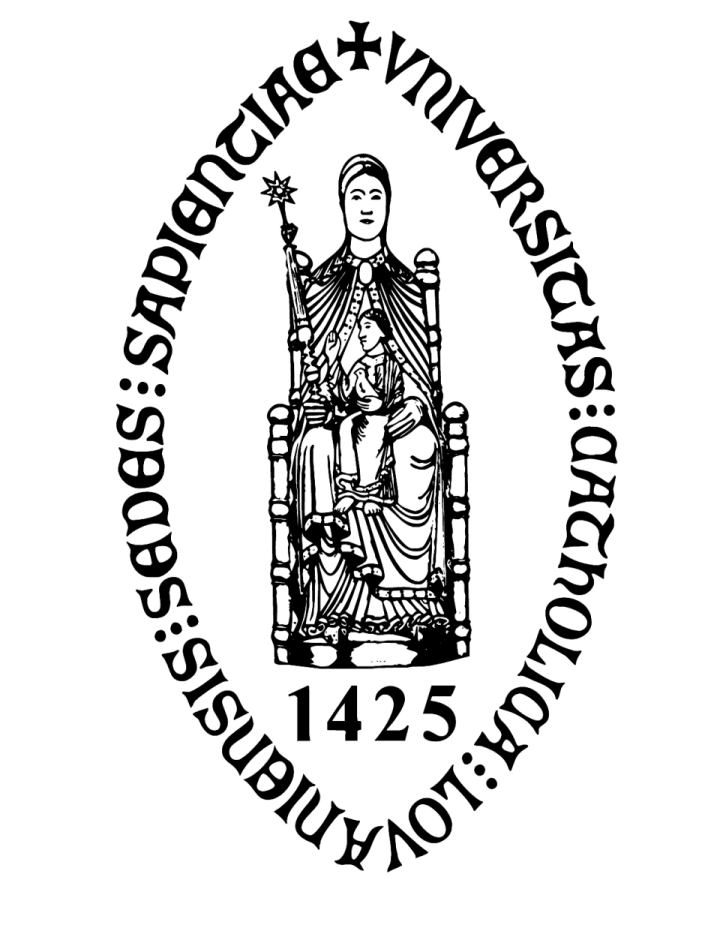
Faculty of Theology, Catholic University of Leuven
The Leuven Faculty of Theology was a branch of the Catholic University of Leuven, founded in 1834 in Mechelen by the bishops of Belgium as the Catholic University of Belgium, that moved its seat to the town of Leuven in 1835, changing its name to Catholic University of Leuven.[1]
Not to be confused with Faculty of Theology, Old University of Leuven or Evangelical Theological Faculty.Motto
Sedes Sapientiae
"Seat of Wisdom", or "Seat of Knowledge"
1834–1968
In 1968 the faculty was divided into Flemish and French speaking departments, and they exist today as faculties of two separate universities : the Faculty of Theology and Religious Studies of the Katholieke Universiteit Leuven (KU Leuven), and the Faculty of Theology of the University of Louvain (UCLouvain), which moved to Louvain-la-Neuve.
Division of the Leuven University had further consequences for the theological faculty. Preeminently, the professor corps was divided, and henceforth it became a Dutch-language education and research body, along with an international English-language program. In 1974 a new library was opened (called the Maurits Sabbe Library since 2004), which is one of the most extensive theological libraries in the world. This library houses various archive collections as well, including the Centre for the Study of the Second Vatican Council.
During the postconciliar period, the number of lay theologians increased strongly among professors and students. In 1970 the Higher Institute of Religious Studies was integrated to a greater extent into the faculty's full-time program. Following the decree for universities in 1991, this institute was completely integrated into the faculty's academic training.
The current faculty is a Roman Catholic Faculty of Theology, and as such stands in the tradition of the Old Faculty established in 1432. Both state diplomas or degrees in theology and canonical degrees are granted by the faculty, which organizes its programs according to the Apostolic Constitution Sapientia Christiana of 1979. Nevertheless, students from various backgrounds and confessional denominations are enrolled in faculty programs. This helps to account for the faculty's international appeal among theological students who come from around the world to study in Leuven, or who attend an ever-growing number of affiliated institutes, such as the Institut Catholique de Paris. Because it offers a completely English-language program, research and education on the faculty has shifted from the French-speaking to the English-speaking world. Through the internationalization of the program, the Leuven faculty belongs to the group of theological faculties with the highest number of students around the world. In the 2022-23 academic year, almost 300 students were enrolled in the Dutch-language program, and the number of international students increased to 338. Approximately 160 students are preparing a doctoral dissertation under the guidance of the Leuven professoral corps.
Also, the faculty offers support for alumni engaged in teaching on the level of secondary education and in the pastoral field, through supportive websites such as Thomas and Elisabeth
The faculty is composed of five research units, and its work is carried out in conformity with the Bachelor-Master structure established in accordance with the Bologna declaration:
A number of professors from the Faculty of Theology have served as rector of the university. Since the rector's office was very frequently changed during the time of the Old University, only those theologian-rectors who served after the reopening of the faculty in 1834 are listed below: